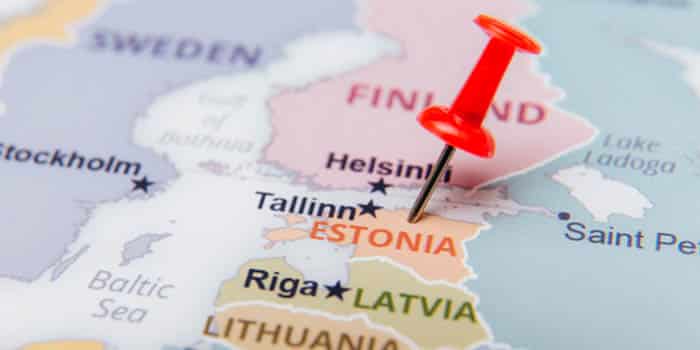
Estonia Plans Amendments to Gambling Act to Address Rising Concerns
Estonia’s Ministry of Finance is currently in the process of preparing amendments to the country’s Gambling Act, with a draft expected to be presented for feedback by mid-year. The amendments come in response to concerns raised regarding the increasing prevalence of online gambling and its impact on individuals.
Rainer Osanik Leads the Amendment Process
Leading the development of these amendments is Rainer Osanik, the head of financial policies and intelligence. During a briefing with the Economic Affairs Committee of the Estonian parliament, Osanik confirmed that the draft is set to be ready by June, with implementation targeted for the first half of 2026.
The main focus of the amendments will be on reviewing online game mechanics, particularly in-play features and incentive structures. This review was prompted by concerns expressed by Committee Chairman Jaak Aab, who highlighted research indicating a rise in “pre-addiction phases” among gamblers.
Proposed Changes to National Self-Exclusion Program
The Ministry of Finance also plans to broaden the country’s national self-exclusion program, HAMPI, to allow family members to request the addition of their relatives to the exclusion list. Currently, self-exclusion in Estonia is voluntary, but the Ministry is considering court-mandated exclusions, despite concerns that this may deter individuals from seeking help.
Osanik emphasized the importance of gambling tax as a vital contribution to Estonian sports and culture. While there are no plans to increase taxation further following last year’s adjustments, the Ministry will continue to evaluate feedback on these tax changes.
No Renewed Efforts to Ban Gambling Ads
Despite concerns about youth gambling, there are no current plans to address loot boxes or in-game virtual currency purchases. Additionally, a renewed effort to ban gambling advertisements seems unlikely, with the focus being on clarifying ad regulations and preventing misleading claims.
Meanwhile, in Latvia, the city council of Riga is working on new regulations to limit land-based gambling venues to designated areas. Similarly, Lithuania has submitted a proposal to the European Commission for new regulations on online gambling platforms, emphasizing game controls, IT security, data management, and technical compliance.
These developments come as the country seeks to increase the legal age of gambling to 21 and strengthen efforts to combat illegal gambling through updated regulations.
ความคิดเห็นเพิ่มเติม
การเปลี่ยนแปลงในกฎหมายการพนันของเอสโตเนียเป็นสิ่งที่สำคัญเนื่องจากการเป็นที่นิยมของการพนันออนไลน์ที่เพิ่มขึ้นอย่างต่อเนื่องในปัจจุบัน การมีการเล่นเกมออนไลน์ที่ต้องการความสนใจมากขึ้นและโครงสร้างของสิ่งทำให้สนใจนี้จึงเป็นจุดประสงค์หลักของการปรับปรุงกฎหมายใหม่
การขยายโปรแกรมการกำหนดเองที่เป็นของประเทศให้กว้างขวางขึ้นเพื่อให้สมาชิกครอบครัวสามารถขอให้เพิ่มผู้ญาตในรายชื่อการกำหนดเอง การกำหนดเองในเอสโตเนียในปัจจุบันเป็นอย่างง่ายตามที่ปรารถนา แต่กระทำการกำหนดเองที่เป็นมาตรการของศาลอาจแสดงให้เห็นว่าอาจทำให้คนประสบปัญหาหยุดรับความช่วยเหลือ
การพยาบาลภาษีการพนัน
การเสียภาษีการพนันเป็นสิ่งสำคัญต่อกีฬาและวัฒนธรรมของชาวเอสโตเนีย ถึงแม้จะไม่มีแผนที่จะเพิ่มภาษีเพิ่มเติมตามการปรับปรุงปีที่แล้ว กระทรวงกำลังดำเนินการประเมินผลต่อการเปลี่ยนแปลงภาษีเหล่านี้ต่อไป
ในขณะเดียวกัน ในประเทศลัตเวีย สภาเมืองรีกากำลังทำงานในระเบียบของกฎหมายใหม่เพื่อ จำกัดสถานที่การพนันที่อยู่บนพื้นที่ ในขณะเดียวกัน ลิทัวเนียได้ส่งข้อเสนอไปยังคณะกรรมการยุโรปเพื่อกฎหมายใหม่เกี่ยวกับแพลตฟอร์มการพนันออนไลน์ เน้นการควบคุมเกม ความปลอดภัยของเทคโนโลยีสารสนเทศ การจัดการข้อมูล และการปฏิบัติทางเทคนิค



